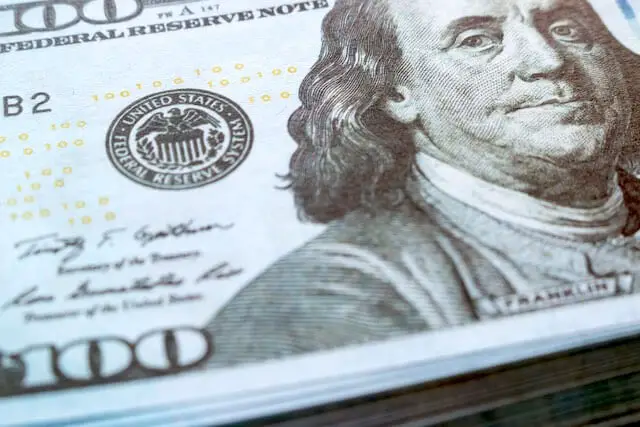Update: The 2024 White House budget proposal has been issued and as expected, it contains the 5.2% proposal for the 2024 federal pay raise.
Early reports suggest that President Biden will propose a 2024 federal pay raise of 5.2% when the 2024 White House budget proposal is issued later this week.
The Washington Post reported that this is the expected amount of the 2024 pay raise for federal employees that the president will put forth in his budget for next year. The budget proposal is currently set to be released on Thursday, March 9, 2023.
A 2024 federal pay raise of 5.2% would be the largest pay raise for the federal workforce since 1980 when it was 9.1%. That raise came during the Carter administration.
Does This Mean the 2024 Federal Pay Raise Will Be 5.2%?
Not necessarily. In recent years, the amount of the federal pay raise proposed by the White House has ended up being the final figure, but it is determined by a lengthy political process that involves both Congress and the president.
In some years, Congress will pass annual federal pay rate adjustments in an appropriations bill. When this occurs, it is usually done in the Financial Services and General Government appropriations bill.
While this often happens, there is no legal requirement that a federal employee pay raise be addressed or considered by Congress. In many years, Congress does not pass legislation on the subject.
The president can, and often does, recommend a pay raise figure per the alternative pay plan. This is typically done late in the year, usually in August. It is often the same amount as what is recommended in the White House budget proposal released earlier in the year.
Of course, if Congress does not like the amount of the raise in the alternative pay plan, it can still pass new legislation determining the final amount. This is most likely to happen during an election year. With an election coming up, the thought process is likely to be that giving a raise could increase the changes of candidates running for office getting more votes from their constituents by giving them more money.
For the 2024 federal pay raise, Congress has already introduced legislation to set next year’s pay raise for federal employees at 8.7%, the same amount as the 2023 COLA. This bill is the FAIR Act, legislation that is introduced annually by Senator Brian Schatz (D-HI) and Congressman Gerry Connolly (D-VA). To date, these bills have never been passed into law.
After this political process has played out fully, the president issues an executive order in December setting the amount of the annual federal pay raise by locality for the next year. The Office of Personnel Management (OPM) calculates the amount of the annual salary for every locality, grade, and step for the next year and publishes the pay tables shortly after the executive order is issued.
What Impact Does Inflation Have on the Federal Pay Raise?
Inflation is technically not a factor in determining a pay raise for federal employees. The federal pay raise is determined by politics, so political considerations such as inflation could play a role in determining the annual pay raise, at least indirectly. Lawmakers hoping to curry the favor of voters may cite rising inflation as a need to give more money to federal employees in the form of a pay raise.
During the Carter administration, inflation was running even higher than it has under the Biden administration. Pay raises for the federal workforce were generally higher then also. The federal government has since changed the way it calculates inflation, so modern inflation might actually be higher than what the government is reporting than it did in the early 1980s.
Is the Federal Pay Raise Related to the Annual COLA?
No, the two are separate things and impact different groups of people. COLAs apply to federal retirees and Social Security recipients. The federal pay raise applies to current federal employees.
The process for determining the COLA is automatic. Unlike the pay raise, it is not subject to politics or a result of the action of Congress or the president each year. You will either get one or not based solely on a formula that is put in place by law and determined based on the cost of living as measured by the Consumer Price Index for Urban Wage Earners and Clerical Workers (CPI-W).
Inflation has been soaring over the last couple of years. This is reflected in the amounts of the cost of living adjustment (COLA) figures for 2022 and 2023. As noted previously, this can have an indirect impact on the federal pay raise since lawmakers may cite it as a reason to give federal employees a higher raise. This may be the case with the FAIR Act since it proposes the same average pay raise in 2024 as the 2023 COLA.






